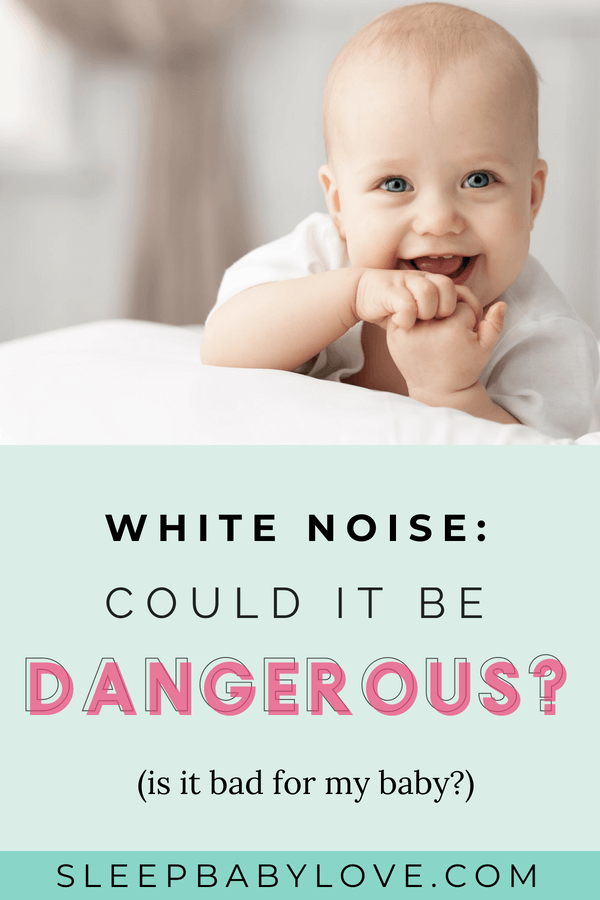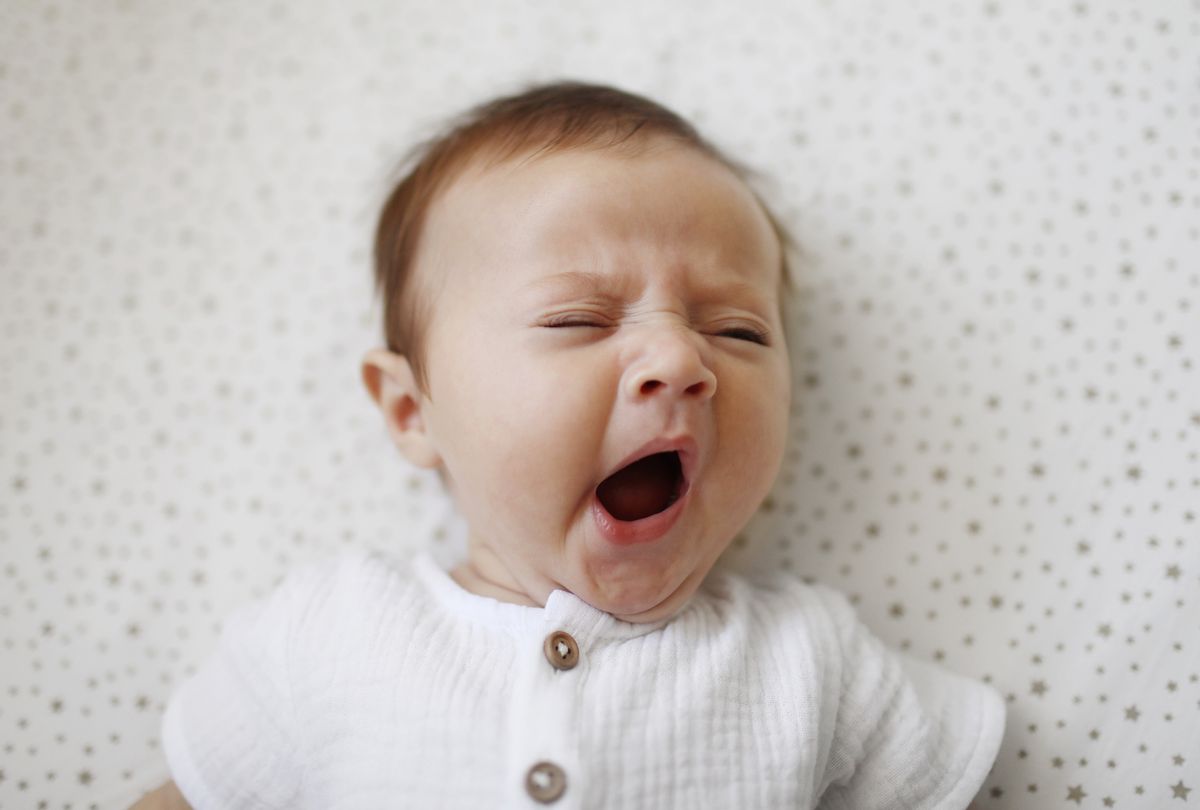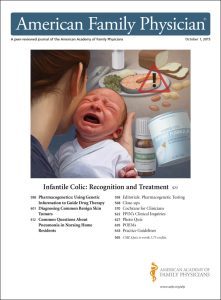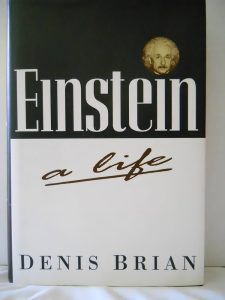White noise is not bad for babies and can actually be beneficial to their sleep and relaxation. It helps block out other noises and create a soothing environment for them to sleep in.
Additionally, white noise can help babies establish a sleep routine and minimize disruptions during naptime or bedtime. In recent years, white noise machines or apps have gained popularity among parents as a way to calm fussy babies and promote better sleep.
However, some concerns have been raised about the potential negative effects of prolonged exposure to white noise. This article aims to explore whether or not white noise is bad for babies and provide a balanced perspective on its impact. By understanding the pros and cons, parents can make informed decisions about using white noise for their little ones’ sleep and well-being.
Understanding White Noise
White noise can have positive effects on babies, creating a soothing environment that promotes sleep and relaxation. However, it’s important to understand the potential risks and limitations of prolonged exposure to white noise.
White noise has gained popularity as a soothing aid for babies, but it’s important to understand exactly what it is and how it works. White noise is a combination of all audible frequencies, playing at equal intensity. It sounds similar to the static you might hear on a television or radio when they’re tuned to a frequency that isn’t in use.
Types Of Noise
There are various types of white noise that you can use to calm your baby. These types include:
- Brown noise: Also known as “red noise,” brown noise has a deeper and richer sound compared to white noise. It resembles the sound of rushing water or a waterfall.
- Pink noise: Pink noise is similar to white noise but with less high-frequency content. It has a more soothing and gentle sound, often compared to falling raindrops or leaves rustling in the wind.
- Blue noise: Blue noise has a higher intensity, with more high-frequency components compared to white noise. It is often described as a “hissing” or “sizzling” sound.
- Violet noise: Violet noise is the highest frequency and most intense of all the types. It has a sharp and crisp sound, resembling the crashing of waves or a strong gust of wind.
How White Noise Machines Work
White noise machines have become a popular choice for parents seeking to calm their babies or help them sleep. These machines produce a continuous sound that masks other noises in the environment, creating a soothing and consistent ambiance. They primarily work by:
- Generating white noise: White noise machines generate a constant stream of white noise, providing a consistent and calming background sound.
- Blocking distractions: By masking other noises, white noise machines help reduce the impact of sudden sounds or disturbances that may wake your baby.
- Creating a sleep routine: Using a white noise machine consistently signals to your baby that it’s time to sleep, potentially helping them establish a sleep routine and fall asleep more easily.
Overall, white noise can be beneficial for babies as it mimics the familiar sounds they heard in the womb. However, it’s essential to ensure that the volume is set at a safe level and to use it appropriately. Understanding the different types of white noise and how white noise machines work can help you make an informed decision on whether to incorporate white noise into your baby’s sleep routine.
Effects Of White Noise On Babies
White noise has been a popular tool used to soothe and comfort babies for many years. However, there has been an ongoing debate surrounding the potential effects of white noise on babies. Understanding the various impacts of white noise can help parents make informed decisions when using it for their little ones.
Benefits Of White Noise For Babies
White noise, such as gentle sounds reminiscent of a mother’s womb, can create a comforting and familiar environment for babies, promoting better sleep and relaxation. It helps block out other noises that may startle the baby, allowing them to stay asleep longer and more peacefully. This consistent sound can also serve as a calming cue for babies, making it easier for them to settle and find comfort when it’s time to sleep.
Potential Risks And Concerns
While white noise can be advantageous, prolonged exposure to loud or constant white noise may pose potential risks for babies. It is essential to monitor the volume and duration of white noise exposure to prevent any negative impacts on a baby’s hearing and auditory development. Additionally, over-dependency on white noise for sleep could potentially hinder a baby’s ability to self-soothe and sleep without external stimuli.
Choosing The Right White Noise For Your Baby
When it comes to creating a soothing environment for your baby, white noise can be a valuable tool. However, it’s essential to choose the right white noise for your baby’s needs. Let’s explore how to choose the right white noise for your baby.
Safe Volume Levels
Safe volume levels are crucial when using white noise for your baby. Excessive noise can be harmful to your baby’s hearing. It’s recommended to keep the white noise machine at a moderate volume, typically around 50-60 decibels. This level is similar to the sound of a soft shower or the hum of a car running on the street.
Recommendations For White Noise Machines
When selecting a white noise machine for your baby, prioritize safety and quality. Look for machines that offer adjustable volume settings, timers, and a variety of soothing sounds. Some popular and highly-rated options include:
- Hatch Baby Rest Sound Machine: Offers a range of sounds and customizable settings for baby’s sleep environment.
- Marpac Dohm-DS All Natural Sound Machine: Provides gentle, natural sound that soothes and masks background noise.
- HoMedics SoundSpa Portable Sound Machine: Portable and versatile, offering a variety of calming sounds and a timer feature.

Using White Noise For Better Sleep
Establishing A Routine
Establishing a bedtime routine can help create a peaceful sleep environment for your baby. This routine may include activities such as a warm bath, reading a book, or gentle rocking. By following a consistent routine, your baby will associate these activities with sleep, making it easier for them to relax and drift off into a restful slumber.
Tips For Incorporating White Noise
- 1. Choose a Calming Sound: Select a soft and repetitive white noise sound such as ocean waves, rainfall, or a steady hum. Avoid loud or abrupt sounds that may startle your baby.
- 2. Positioning the Device: Place the white noise machine or speaker away from the crib, ensuring it is at a safe distance to prevent damage to your baby’s hearing.
- 3. Consistent Volume: Keep the white noise at a consistent volume throughout the night. This can help drown out external noises and create a soothing environment for your baby.
- 4. Gradual Transition: Introduce white noise gradually into your baby’s sleep routine. Starting with short periods during naps can help your baby adjust to the sound before implementing it during nighttime sleep.
Alternatives To White Noise
When it comes to white noise for babies, it’s important to consider alternatives…
Natural Sounds For Babies
Natural sounds like ocean waves or rain can be calming for babies.
Music And Lullabies
Soft music or gentle lullabies can help babies relax and drift off to sleep.

Myths And Facts About White Noise
White noise is a common practice for soothing babies, but myths persist. Contrarily, white noise can help infants sleep better and improve focus. It’s vital to regulate volume to safe levels for optimal benefits.
Common Misconceptions Debunked
Myth: White noise can cause hearing damage in babies.
Fact: White noise at a reasonable volume is safe for infant hearing development.
- Myth: White noise makes babies dependent on it for sleep.
- Fact: White noise can be a useful sleep aid but babies can learn to sleep without it.
Scientific Evidence And Studies
Research: Studies show white noise can promote deeper and longer periods of sleep in infants.
| Study | Findings |
|---|---|
| Harvard Medical School study | White noise can mimic the sounds babies hear in the womb, promoting calm and relaxation. |
| American Academy of Pediatrics | White noise can be beneficial in improving sleep quality in infants. |
Final Thoughts
White noise can have calming effects on babies, aiding in better sleep and reducing fussiness. Moderation is key in using white noise for infants, as prolonged exposure to loud volumes may have adverse effects on their hearing and overall development.
It’s recommended to consult with pediatricians for personalized guidance.
Parenting Considerations
When it comes to white noise for babies, it is important for parents to consider a few factors before incorporating it into their sleep routine. First and foremost, it is crucial to choose the right volume level. Babies have sensitive ears, so it is best to keep the volume low and gentle.
Parents should also take into account the duration of white noise exposure. Experts recommend using white noise only during sleep times and not as a constant background sound. It is essential for babies to have quiet periods throughout the day for their auditory development.
Additionally, white noise should not replace healthy sleep habits and routines. While it may be helpful in soothing a fussy baby, it should not become a crutch. Creating a consistent sleep environment and implementing calming activities or rituals can also contribute to better sleep for your little one.
Conclusion
In conclusion, white noise can be a useful tool for soothing babies and promoting better sleep. However, it is crucial for parents to be mindful of the volume, duration, and usage of white noise. It should be used selectively and in conjunction with healthy sleep habits. As with any parenting decision, it is always best to consult with your healthcare provider to determine what is best for your baby.

Is It Ok To Play White Noise All Night For Baby?
Yes, it’s okay to play white noise all night for a baby as it can promote better sleep by masking other sounds that may disrupt their rest. Just ensure the volume is kept at a safe level.
When Should You Stop Using White Noise For Babies?
You should stop using white noise for babies when they can sleep through the night without it.
Does White Noise Affect Brain Development?
White noise doesn’t negatively impact brain development in infants. In fact, it can aid sleep and improve focus. However, excessive and loud white noise may cause hearing problems. It’s crucial to use white noise machines at a safe volume.
Does White Noise Have Negative Effects?
White noise does not have any negative effects. It can actually be beneficial for sleep, concentration, and relaxation.
Conclusion
To sum up, white noise can provide a soothing and calming environment for babies, aiding in their sleep and overall well-being. However, moderation and careful usage are key. Continuous exposure to loud and harsh white noise can potentially negatively impact the baby’s hearing and cognitive development.
It is always best to consult with pediatricians and follow their advice on using white noise machines or apps. Keeping baby’s safety and health in mind should be the top priority when considering white noise for infants.




